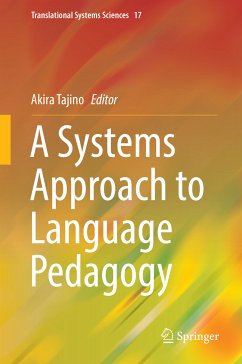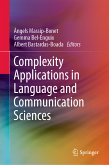¿This volume represents the first attempt in the field of language pedagogy to apply a systems approach to issues in English language education. In the literature of language education, or more specifically, second or foreign language learning and teaching, each topic or issue has often been dealt with independently, and been treated as an isolated item. Taking grammar instruction as an example, grammatical items are often taught in a sequential, step-by-step manner; there has been no "road map" in which the interrelations between the various items are demonstrated. This may be one factor that makes it more difficult for students to learn the language organically.
The topics covered in this volume, including language acquisition, pedagogical grammar, and teacher collaboration, are viewed from a holistic perspective. In other words, language pedagogy is approached as a dynamic system of interrelations. In this way, "emergent properties" are expected to manifest. Thisbook is recommended for anyone involved in language pedagogy, including researchers, teachers, and teacher trainers, as well as learners.
Dieser Download kann aus rechtlichen Gründen nur mit Rechnungsadresse in A, B, BG, CY, CZ, D, DK, EW, E, FIN, F, GR, HR, H, IRL, I, LT, L, LR, M, NL, PL, P, R, S, SLO, SK ausgeliefert werden.









